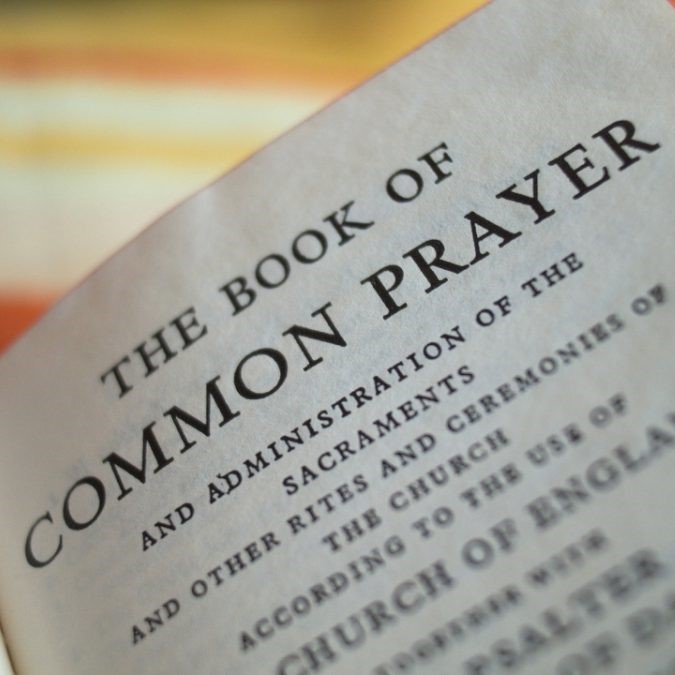
“The household is a little Church.” When St. John Chrystostom said this, he was referring to the household in the late 4th century A.D., but he was also commenting on what he saw in Holy Scripture. Abraham loved Sarah as his own body and she in turn loved him as her head. Their orderly love for God and one another gave order and peace to the more than three hundred souls who made up their household (Gen. 14:14). Abraham’s was a big household, indeed it would be a large church if it were in our diocese! The relationship between the domestic and the ecclesial (or church) life was perhaps easier to see when families lived together in multi-generational homes along with their servants and farmhands, traveling together as a little society to church every Sunday and holy day.
When Edmund Gibson, the bishop of London (d. 1748), wrote his Family Prayers (now in the back of our 1928 Prayer Book), he envisioned the “master” or “mistress” of the house leading prayer for the numerous relatives, friends and servants living on the property. Nowadays, in the post-industrial and post-Christian world, households are more like little islands, occupied by two or three people for short periods of time each day, often isolated in their own rooms. Many families too are no longer oriented “geographically” as a domestic society should be around “The Board”, that is the dinner table, as Fr. Robert Capon once lamented. Does the life of the home still point to the parish? Chrysostom says a Christian domestic community produces people who are “fit to oversee the Church”, because the mutual love of husband and wife points to the love shared between Christ and his bride, manifested in the local parish church.
One of the reasons why many churches establish Cell Groups (often called Small Groups) is that they have the potential to unite our domestic and ecclesial life. A Cell Group is a gathering of a “little Church” for the express purpose of building up the parish church by carrying out the parish’s mission to live the Christian life together. At Church of Our Saviour, our mission statement speaks of “rejoicing in” and “proclaiming the love of God in Jesus Christ,” as well as “living the traditional Christian Faith” and “passing on the same undiluted and saving faith to our children and community.” Our Sunday gatherings do not accomplish this mission alone. In order to fulfill our mission (Christ’s mission), we need to be actively meeting, praying, and communing with one another throughout the week.
As we begin to plant Cell Groups in the various geographic regions around our parish, we hope that you will come to find these meetings indispensable support groups for our shared journey in faith and Christian charity. Groups will be composed of all ages, meeting around the table for dinner, Evening Prayer, and group discussions about Holy Scripture, as well as making plans to serve our communities in works of mercy and charity. We have a wonderfully blessed community at Church of Our Saviour! Let’s work together to point our homes and communities to the parish by opening the door to our neighbors, thus multiplying the opportunities for other people to join our parish as we reach the unchurched and disaffiliated, and watch as Christ’s blessing of love and peace rebounds again to our parish and our homes, reflecting the reciprocal movement of love between Christ and his Bride.
The Rev. Dr. Eric Parker+
